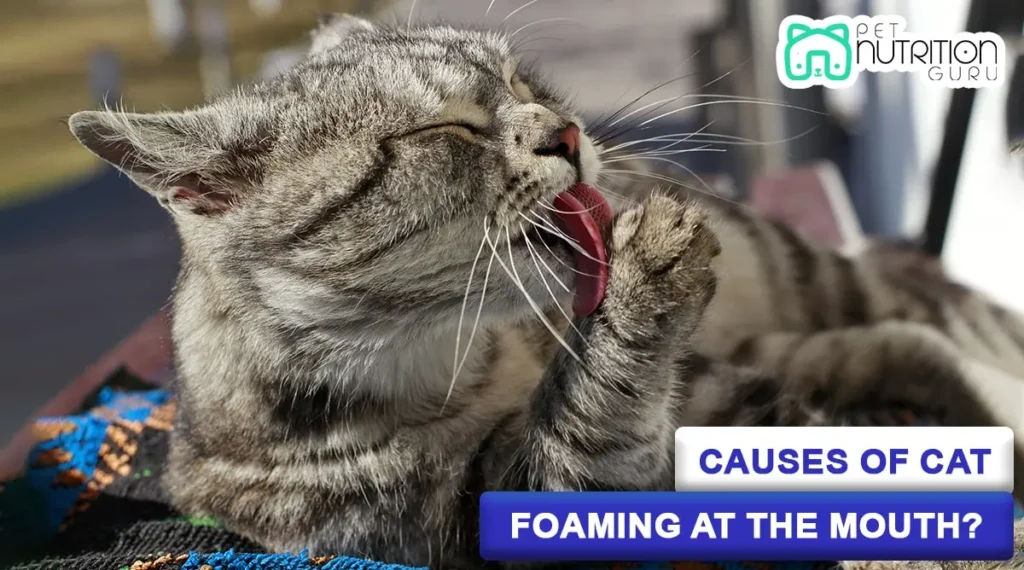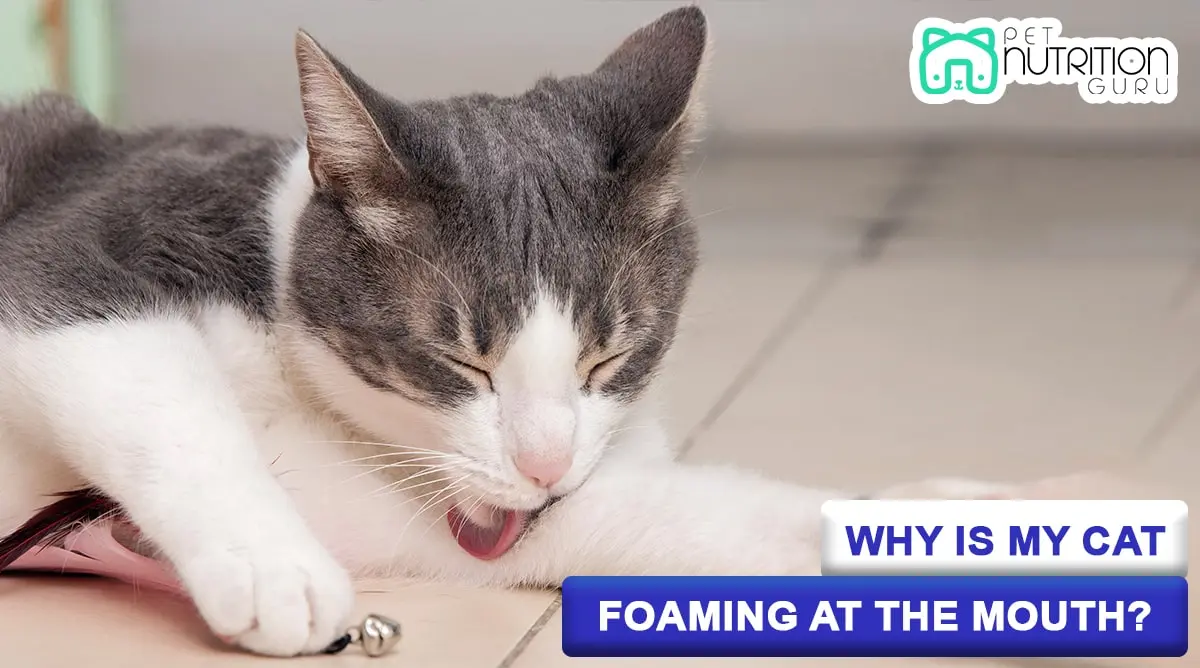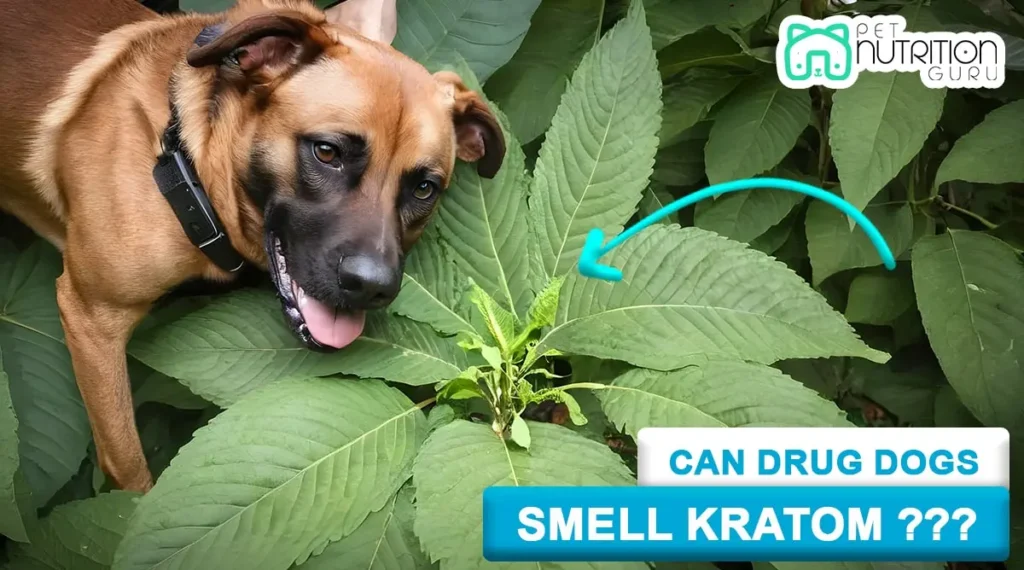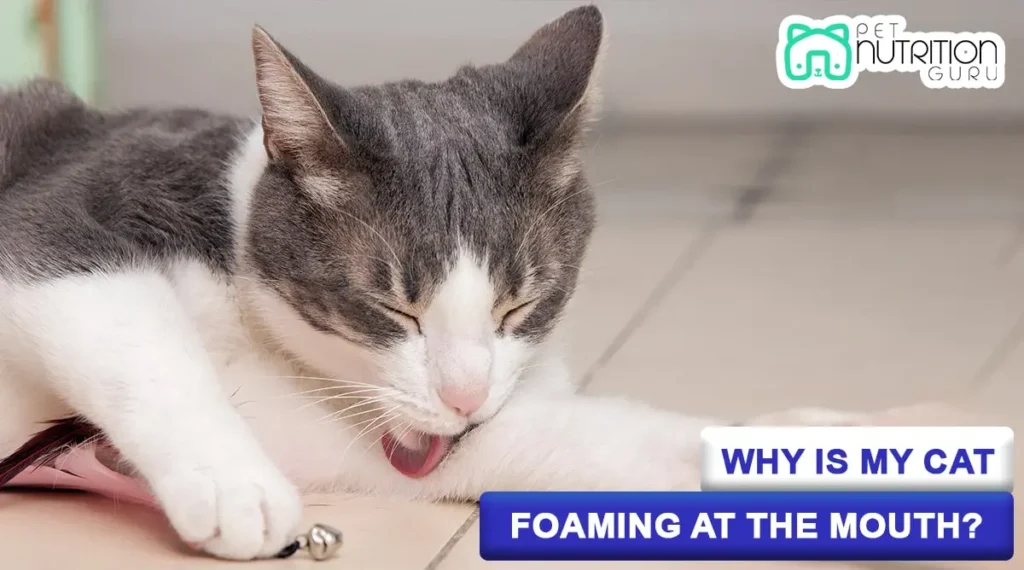If you’ve ever seen your cat foaming at the mouth, you know it can be a scary sight. But don’t panic! Small head cats are more prone to foaming at the mouth than other cats, so it’s important to be aware of the causes and symptoms. Foaming at the mouth is a symptom of a variety of medical conditions, some of which are serious, but many of which are not.
Why is My Cat Foaming at the Mouth?
“Cat Foaming at the Mouth and Drooling are common signs of distress. While occasional foaming or drooling may not be cause for concern, persistent or excessive symptoms can indicate underlying health issues. Understanding the potential causes of foaming and drooling in cats is crucial for pet owners to ensure timely diagnosis and treatment.”
Here is the Most Popular Question: “Can Cats have McDonald’s Fries?”
In this article (My Cat Foaming at the Mouth), we’ll discuss the causes, symptoms, and treatment of cat foaming at the mouth in a simple and easy-to-understand way.
Causes of Cat Foaming at the Mouth

There are many different causes of cat foaming at the mouth, including:
- Stress: Stress can cause a cat to produce excessive saliva, which can lead to foaming at the mouth.
- Rabies: Rabies is a fatal viral infection that affects the central nervous system. Rabies can lead to foaming at the mouth, as well as other symptoms such as aggression, paralysis, and difficulty swallowing.
- Epilepsy: Epilepsy is a neurological disorder that can cause seizures. Seizures can lead to foaming at the mouth, as well as other symptoms such as muscle twitching, loss of consciousness, and incontinence.
- Poisoning: Poisoning can occur when a cat ingests a toxic substance, such as antifreeze, rat poison, or certain plants. Poisoning can lead to foaming at the mouth, as well as other symptoms such as vomiting, diarrhea, and seizures.
- Meningitis: Meningitis is an inflammation of the meninges, the membranes that surround the brain and spinal cord. Meningitis can be caused by a variety of factors, including bacterial or viral infections, and can lead to foaming at the mouth, as well as other symptoms such as fever, lethargy, and neck pain.
- Dental Disease: Dental disease can lead to a buildup of bacteria in the mouth, which can cause inflammation and foaming at the mouth.
- Encephalitis: Encephalitis is an inflammation of the brain. Encephalitis can be caused by a variety of factors, including viral infections, and can lead to foaming at the mouth, as well as other symptoms such as seizures, vomiting, and difficulty walking.
| Cause | Description |
|---|---|
| Epilepsy | A neurological disorder that can cause seizures |
| Meningitis | An inflammation of the meninges, the membranes that surround the brain and spinal cord |
| Encephalitis | An inflammation of the brain |
| Rabies | A fatal viral infection that affects the central nervous system |
| Poisoning | The ingestion of a toxic substance |
| Dental disease | A buildup of bacteria in the mouth |
| Stress | A psychological condition that can cause a cat to produce excessive saliva |
Popular Question: “Is Cat Saliva Harmful to Humans?“
Symptoms of Cat Foaming at the Mouth
In addition to foaming at the mouth, other symptoms of cat foaming at the mouth may include:
- Fever
- Seizures
- Lethargy
- Paralysis
- Vomiting
- Neck pain
- Aggression
- Incontinence
- Difficulty walking
- Muscle twitching
- Difficulty swallowing
- Loss of consciousness
Diagnosis of Cat Foaming at the Mouth
If you see your cat foaming at the mouth, it is important to seek veterinary attention immediately. Your veterinarian will perform a physical examination and ask you about your cat’s symptoms. They may also recommend diagnostic tests, such as blood tests, X-rays, or an MRI, to determine the underlying cause of the foaming.
Popular Question: “My Dog Bed is Wet but not Urine“
Treatment of Cat Foaming at the Mouth
The treatment for cat foaming at the mouth will depend on the underlying cause.
If the cause is a medical emergency, such as epilepsy or meningitis, your veterinarian will likely recommend immediate hospitalization and treatment. This may include:
- Intravenous fluids
- Anticonvulsant medications
- Antibiotics
- Oxygen therapy
If the cause is less serious, such as dental disease or stress, your veterinarian may recommend a course of antibiotics or other medications. This may include:
- Antibiotics to treat any underlying infection
- Pain relievers to reduce discomfort
- Anti-anxiety medications to help reduce stress
In some cases, surgery may be necessary to treat the underlying cause of cat foaming at the mouth. For example, surgery may be necessary to remove a tumor or to repair a dental problem.
Popular Question: “My Dog ate Aquaphor“
Home Care
In addition to veterinary treatment, there are some things you can do at home to help your cat recover from foaming at the mouth. These include:
- Providing a quiet and comfortable environment. This will help to reduce your cat’s stress levels.
- Offering your cat small amounts of water or milk. This will help to keep your cat hydrated and to clear their mouth of any foam.
- Monitoring your cat’s symptoms. If your cat’s symptoms worsen or do not improve, it is important to seek veterinary attention immediately.
Popular Question: “Is Aquaphor Safe for Dogs?“
Prevention of Cat Foaming at the Mouth
There are a few things you can do to help prevent cat foaming at the mouth, including:
- Vaccinate your cat against rabies.
- Keep your cat away from toxic substances.
- Take your cat to the veterinarian for regular checkups.
Popular Question: “Cat Losing Weight and Throwing Up?“
Conclusion
Cat foaming at the mouth is a symptom of a variety of medical conditions, some of which can be serious. If you see your cat foaming at the mouth, it is important to seek veterinary attention immediately. With prompt diagnosis and treatment, most cats can make a full recovery.
Disclaimer
This Article (Why is My Cat Foaming at the Mouth?) contains essential information. We are not a veterinarian but we have Pet Behaviorist professionals. If your Cat discloses any indication of ailment, call your veterinarian.
Bear in mind that every Cat is Different, and if you have any worries regarding your Cat’s Health or practices, immediately seek specialist recommendations from your veterinarian.
If you want more Knowledge about Pet Nutrition, visit our Blog Section.
FAQ’s (Frequently Asked Questions)
Cats may spit foamy saliva due to nausea, dental disease, toxin ingestion, or stress.
Stay calm and assess the situation. Remove any potential toxins, offer water or bland food if nauseous, and contact your veterinarian if symptoms persist or worsen.
Cats may foam at the mouth while eating due to nausea, dental disease, toxin ingestion, or stress. Observe your cat closely and contact your veterinarian if concerned.
Lip smacking and foaming at the mouth can be a sign of nausea in cats, but it can also indicate dental disease, toxin ingestion, or stress.
Latest Articles
- Can Dogs Eat Soursop Fruit? Find Out the Truth Here
- Can Drug Dogs Smell Kratom? The Shocking Truth Revealed
- When Do Dogs Go into Heat after Having Puppies?
- Dog Breed Guides: Mini Australian Shepherd
- Why is My Cat Foaming at the Mouth? Fact you need to Know
- Can Dogs Eat Chicken Heads? Reality, Benefits, Risk
Subscribe to Pet Nutrition Guru
Subscribe below to receive expert pet care advice, pet wellness tips, and exclusive promotions.







